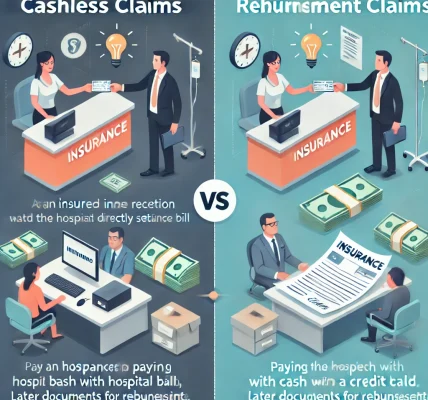When you file an insurance claim, one of the most important people you’ll interact with is the insurance adjuster. Whether it’s for a car accident, property damage, or health-related claims, insurance adjusters play a critical role in determining how much compensation you receive. But what exactly do they do, and how can you ensure a fair settlement?
In this DIY guide, we’ll explore the responsibilities of an insurance adjuster, the different types of adjusters, how they assess claims, and tips for dealing with them to maximize your claim payout.
Who is an Insurance Adjuster?
An insurance adjuster (also known as a claims adjuster) is a professional responsible for investigating and evaluating insurance claims. Their main goal is to determine the extent of an insurer’s liability and ensure that the payout aligns with the terms of the policy.
Insurance adjusters work for various entities, including insurance companies, independent firms, or policyholders themselves (public adjusters). Their findings directly impact whether a claim is approved and how much compensation is offered.
Types of Insurance Adjusters
There are three primary types of insurance adjusters:
1. Company/Staff Adjusters
- Employed directly by insurance companies.
- Their job is to protect the insurer’s financial interests while settling claims fairly.
- Typically handle a large number of claims simultaneously.
✅ Tip: Since staff adjusters work for the insurance company, their goal is often to minimize payouts. Always provide complete and well-documented evidence to support your claim.
2. Independent Adjusters
- Hired by insurance companies but work as third-party contractors.
- They operate similarly to staff adjusters but are not full-time employees.
- Often used when insurance companies need additional help due to high claim volumes (e.g., after natural disasters).
✅ Tip: Independent adjusters follow the insurance company’s guidelines, so their assessments may still favor the insurer. Be prepared with documentation to negotiate effectively.
3. Public Adjusters
- Work on behalf of policyholders (not insurance companies).
- Help policyholders maximize their claim settlements.
- Charge a fee, usually a percentage of the claim payout.
✅ Tip: If you feel that your claim has been undervalued, hiring a public adjuster can be beneficial. However, ensure their fees do not outweigh the additional compensation you might receive.
What Does an Insurance Adjuster Do?
1. Investigates the Claim
- Interviews the claimant and witnesses.
- Reviews the insurance policy to determine coverage limits.
- Examines damages (e.g., property, vehicle, medical reports).
✅ Tip: Always be honest and consistent when providing information. Discrepancies can lead to claim denial.
2. Inspects the Damage
- Visits the site of the accident or damage.
- Takes photographs and notes for documentation.
- May bring experts like engineers, mechanics, or doctors for further assessment.
✅ Tip: Before the adjuster arrives, document everything yourself. Take pictures, collect receipts, and gather any necessary reports.
3. Determines the Value of the Claim
- Estimates repair or replacement costs.
- Reviews past claim history and policy exclusions.
- Considers depreciation and other factors that could affect payout.
✅ Tip: If you disagree with the adjuster’s valuation, get independent repair estimates or appraisals to support your case.
4. Negotiates the Settlement
- Offers a payout based on their findings.
- May revise the offer if the claimant disputes the initial amount.
✅ Tip: Never accept the first offer without carefully reviewing the details. If it seems too low, negotiate with evidence.
5. Closes the Claim
- Once a settlement is reached, the adjuster finalizes the claim.
- The insurance company issues the agreed-upon payment.
✅ Tip: Read all final documents before signing. Ensure there are no hidden clauses that could affect future claims.
Tips for Dealing with an Insurance Adjuster
Navigating insurance claims can be tricky, especially if you’re unfamiliar with the process. Here are some key tips to handle interactions with an adjuster effectively:
1. Be Prepared
- Have all necessary documentation ready before speaking with the adjuster.
- This includes policy details, incident reports, photos, and witness statements.
2. Keep Communication Professional
- Remain calm and polite, even if you’re frustrated.
- Stick to facts and avoid speculation or emotional statements.
3. Don’t Rush to Accept an Offer
- Adjusters may start with a lower settlement offer, expecting negotiations.
- Take your time to review the offer and compare it with your damages.
4. Get Independent Estimates
- Don’t rely solely on the adjuster’s assessment.
- Obtain quotes from contractors, mechanics, or medical professionals to validate your claim.
5. Request Everything in Writing
- Any claim-related communication should be documented.
- Written records help if there’s a dispute later.
6. Consider Hiring a Public Adjuster (if needed)
- If you believe the insurance company is undervaluing your claim, a public adjuster can negotiate on your behalf.
- Ensure the cost of hiring them is justified by the potential increase in settlement.
Common Myths About Insurance Adjusters
🔹 Myth 1: Adjusters are on your side. ✅ Reality: Adjusters work for the insurance company, not the policyholder. Their goal is to settle claims efficiently while minimizing company expenses.
🔹 Myth 2: The first offer is the best offer. ✅ Reality: Initial offers are often low. You can negotiate for a better payout with strong documentation.
🔹 Myth 3: You must accept the adjuster’s decision. ✅ Reality: If you disagree with the adjuster’s assessment, you can appeal, provide additional evidence, or seek legal assistance.
Conclusion
Insurance adjusters play a crucial role in the claims process, but understanding their responsibilities and strategies can help you navigate claims more effectively. By being informed, prepared, and proactive, you can ensure that your claim is handled fairly and that you receive the compensation you deserve.




